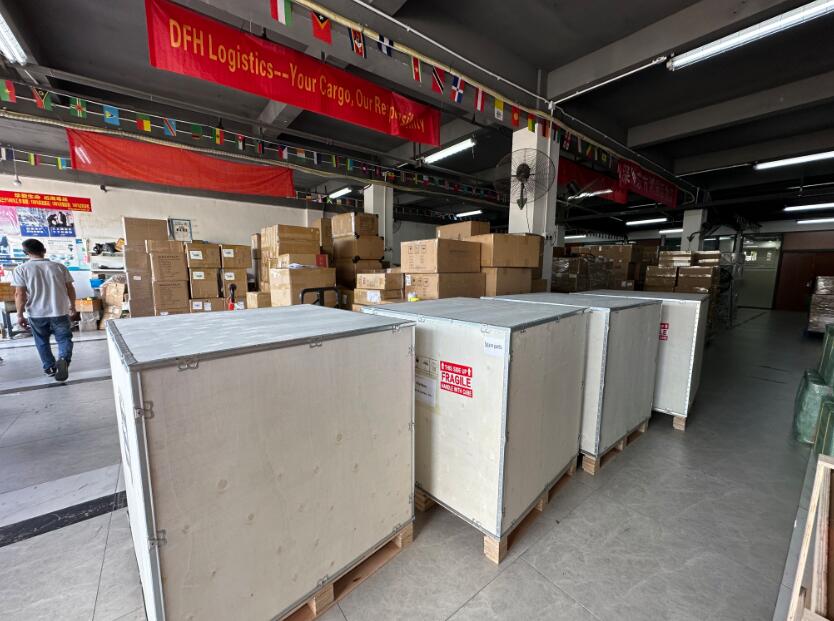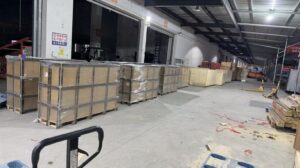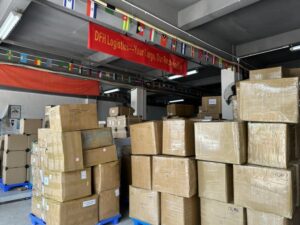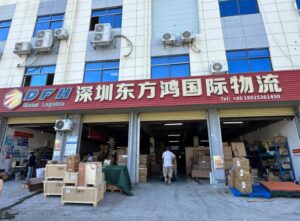Over the years, many Portuguese clients have told me the same frustration: “Ordering from Alibaba is easy, but getting the goods into Portugal without delays or hidden costs is the real challenge.”
As the co-founder of DFH Logistics, I’ve helped European businesses import from China for more than 12 years. In Portugal, the main issues I see are unclear shipping costs, customs surprises, and difficulties with VAT. The good news is that with the right logistics plan, shipping from Alibaba to Portugal can be smooth and cost-efficient.
In this guide, I’ll explain the key points you need to know — shipping methods, costs, customs clearance, Portugal’s 23% VAT, and when DDP shipping makes sense. My goal is to give you practical advice, so you can avoid costly mistakes and import with confidence.
Why buy from Alibaba and ship to Portugal?
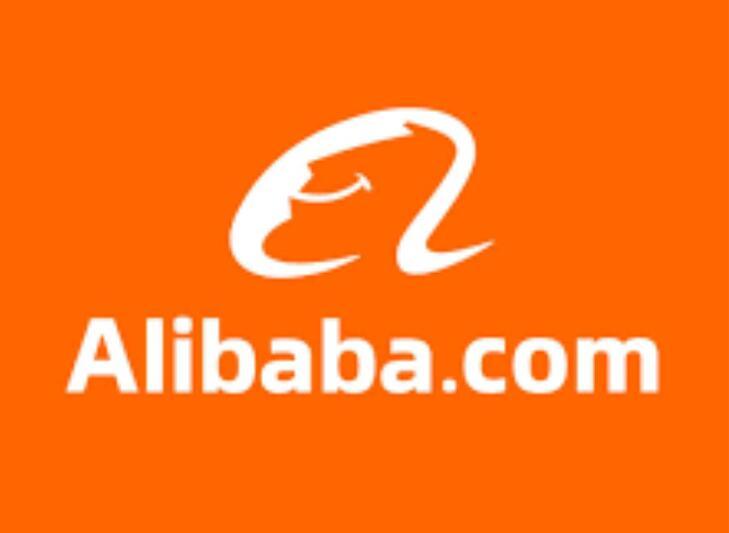
Many Portuguese businesses come to me because local suppliers are either too expensive or don’t offer the variety they need. Alibaba helps solve this problem by giving direct access to thousands of Chinese factories.
Main advantages I’ve seen for Portuguese importers:
- Lower costs: Factory-direct pricing often beats EU wholesalers.
- Wide selection: Electronics, textiles, furniture, and household goods are among the top imports.
- Scalability: Start with small test orders and grow into container loads.
- Logistics access: With major Atlantic ports and strong road links through Spain, Portugal is well-positioned for distribution across Iberia.
With 23% VAT and rising demand for affordable imports, buying from Alibaba has become one of the best ways for Portuguese companies to expand profit margins.
How does shipping work on Alibaba, and should your supplier handle it?
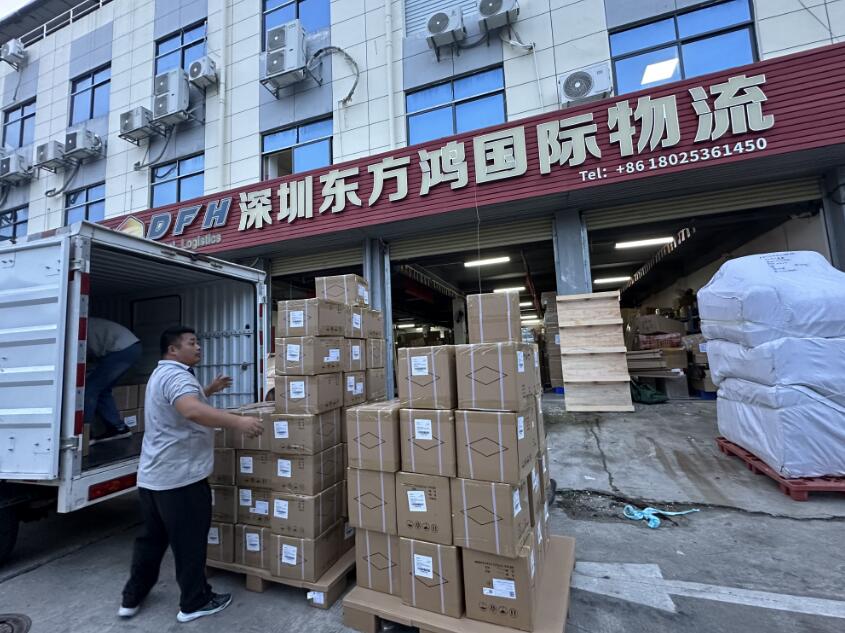
One mistake I often see Portuguese importers make is trusting their Alibaba supplier to handle all the shipping. At first, it feels convenient — but in reality, it often leads to unexpected costs, customs delays, and problems with Portugal’s 23% VAT.
Option 1: Supplier-arranged shipping
- Many suppliers ship through Cainiao, DHL, FedEx, or UPS.
- For samples or small parcels, this can work fine.
But the risks are clear:
- Costs rise quickly for heavier or bulky cargo.
- Suppliers usually pick the cheapest forwarder, not the most reliable.
- They rarely manage customs clearance in Portugal or VAT payment.
- For sea freight, containers may land at Lisbon, Leixões, or Sines without proper handling.
Option 2: Using your own freight forwarder
- Your supplier prepares goods and hands them to your chosen forwarder.
- A professional forwarder like DFH Logistics arranges:
- Pickup and consolidation in China
- Export customs clearance
- International shipping by air (Lisbon/Porto), sea (Lisbon/Leixões/Sines), rail, or truck (via Spain)
- Import customs clearance in Portugal, duty + 23% VAT payment
- Final delivery to your warehouse, store, or Amazon FBA
Advantages:
- Full control of routes, costs, and timing
- Transparent pricing with no hidden fees
- Smooth customs clearance and VAT handling
- Ability to consolidate multiple Alibaba orders into one shipment
My advice:
- If you’re only buying samples, supplier shipping is fine.
- But for business shipments, I always recommend using your own freight forwarder — it saves you from headaches with Portuguese customs and VAT.
What are the shipping methods from Alibaba to Portugal?

When my clients in Portugal ask me which shipping method to choose from Alibaba, I always tell them it depends on your cargo size, budget, and urgency. Here are the main options:
1. Express Courier (DHL, FedEx, UPS)
- Transit time: 3–7 business days
- Best for: Samples and parcels under 100 kg
- Advantages: Fast, door-to-door, customs included
- Limitations: Expensive for bulky goods
2. Air Freight
- Transit time: 2–5 business days (China → Lisbon/Porto airports)
- Best for: 100–500 kg or time-sensitive cargo
- Advantages: Faster than sea, more economical than express
- Limitations: Still costlier than sea or rail for large shipments
3. Sea Freight (LCL & FCL)
- Transit time: 45–50 days (to Lisbon, Leixões, or Sines ports)
- LCL: Suitable for 1–15 CBM shipments
- FCL: Best for 20ft/40ft containers above 15–20 CBM
- Advantages: Lowest per-unit shipping cost
- Limitations: Longer transit time, port handling needed
4. Railway Freight
- Transit time: 30–35 days (China → Spain → Portugal by truck)
- Best for: Medium-sized shipments needing faster delivery than sea but cheaper than air
- Advantages: Stable pricing, eco-friendly option
- Limitations: Limited capacity and routes
5. Truck Freight
- Transit time: 18–25 days (direct overland from China, or via Spain)
- Best for: Flexible, door-to-door service for mid-sized cargo
- Advantages: No port congestion, direct delivery
- Limitations: More expensive than sea freight
6. DDP Shipping (Delivered Duty Paid)
- Available via: Air, sea, rail, truck
- Transit time: 7–12 days (Air DDP), 40–50 days (Sea DDP), 30–35 days (Rail DDP), 18–28 days (Truck DDP)
- Advantages: All-in-one service — freight, customs clearance, duty, and Portugal’s 23% VAT included
- Best for: Importers without EORI/VAT, e-commerce sellers, and SMEs
Shipping method comparison table
| Method | Transit Time | Cost Level | Best For |
|---|---|---|---|
| Express Courier | 3–7 days | $$$$ | Urgent parcels under 100 kg |
| Air Freight | 2–5 days | $$$ | 100–500 kg shipments |
| Sea Freight LCL | 40–50 days | $ | 1–15 CBM cargo |
| Sea Freight FCL | 40–50 days | $ | Full containers (>20 CBM) |
| Railway Freight | 30–35 days | $$ | Medium cargo, cost/time balance |
| Truck Freight | 18–28 days | $$ | Flexible door-to-door delivery |
| DDP Shipping | 7–40 days (varies) | $$–$$$ | Importers without EORI/VAT, FBA sellers |
What is DDP shipping from Alibaba to Portugal?
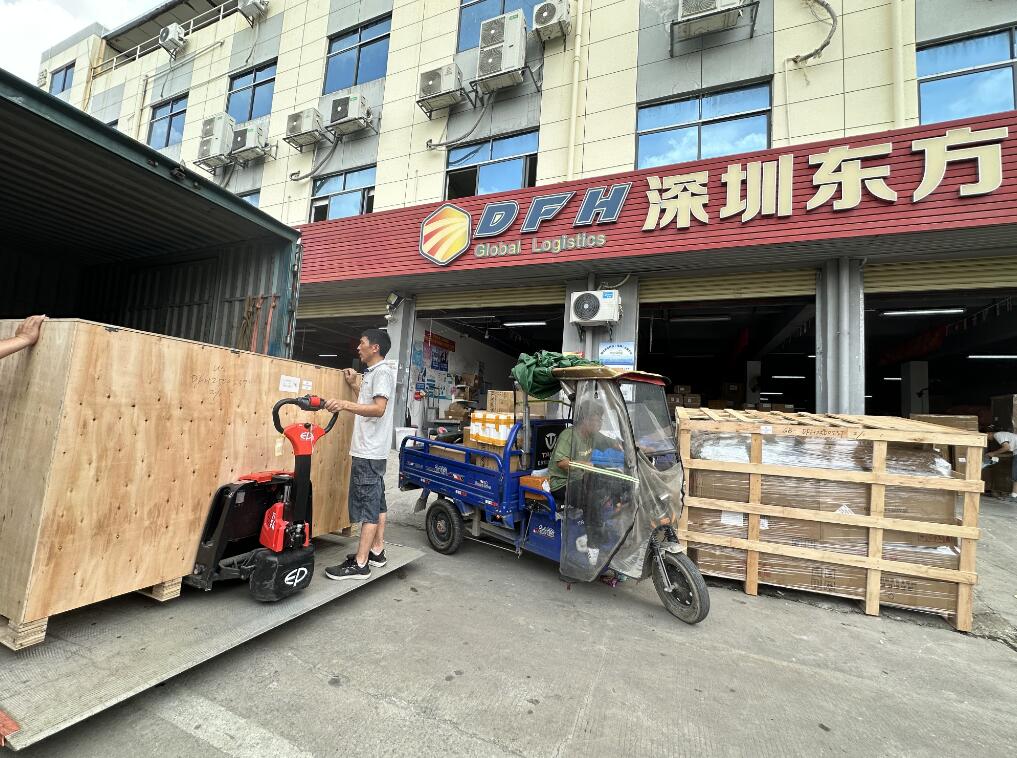
When Portuguese clients ask me how to avoid customs delays and surprise VAT bills, I often recommend DDP (Delivered Duty Paid) shipping. It’s the most worry-free way to import from Alibaba, especially for small businesses and e-commerce sellers.
How DDP shipping works
- We pick up goods from your supplier in China.
- Handle export customs declaration in China.
- Arrange international transport by air (Lisbon/Porto), sea (Lisbon/Leixões/Sines), rail via Spain, or direct truck.
- Manage import customs clearance in Portugal.
- Pay all duties and Portugal’s 23% VAT on your behalf.
- Deliver cargo to your warehouse, shop, or Amazon FBA center.
Why DDP is popular in Portugal
- No EORI or VAT registration needed — we act as the importer of record.
- All-inclusive pricing — freight, duty, and 23% VAT included in one quote.
- Door-to-door service — you don’t need to deal with ports or customs.
- Fewer risks — my team checks HS codes and compliance before shipping.
When I recommend DDP
- If you’re a first-time importer without customs knowledge.
- If you sell on Amazon FBA Spain/Portugal or other EU marketplaces.
- If you want a fixed price and predictable delivery with no hidden costs.
Note from me: Not all Alibaba DDP offers are reliable — I’ve seen suppliers under-declare values, which can trigger fines in Portugal. That’s why I advise working with a professional forwarder like DFH Logistics to ensure compliance and smooth delivery.
How much does it cost to ship from Alibaba to Portugal?

One of the first things my Portuguese clients ask me is: “How much will shipping actually cost from Alibaba to Portugal?” The truth is, the cost depends on the shipping method, weight/volume, and whether you use DDP. Since Portugal is part of the EU, you also need to factor in 23% VAT and customs duties.
Factors that affect cost
- Shipping method: Express, air, sea, rail, or truck
- Cargo size: Air freight is billed by chargeable weight (kg); sea freight by CBM or container
- Destination in Portugal: Delivery to Lisbon is usually cheaper than inland locations
- Customs & VAT: If you don’t use DDP, you must pay 23% VAT on import
Average shipping costs (China → Portugal)
| Method | Transit Time | Cost Range (USD) | Best For |
|---|---|---|---|
| Express Courier | 3–7 days | $6 – $10 per kg | Urgent parcels under 100 kg |
| Air Freight | 2–5 days | $4 – $7 per kg (100–500 kg) | Mid-sized urgent shipments |
| Sea Freight LCL | 40–50 days | $1.8 – $4.5 per kg | 1–15 CBM cargo |
| Sea Freight FCL | 40–50 days | $1,200 – $2,600 per 20ft FCL | Bulk shipments (>20 CBM) |
| Railway Freight | 30–35 days | $2 – $4 per kg | Medium cargo, cost/time balance |
| Truck Freight | 18–28 days | $2.5 – $4.5 per kg | Flexible door-to-door loads |
| DDP Shipping | 7–50 days (varies) | All-inclusive (freight + duty + 23% VAT) | Importers without EORI/VAT, FBA sellers |
Tips for you: If you want the lowest cost, sea freight is usually the best option. But if you don’t have an EORI or VAT number, I recommend DDP shipping — it gives you one fixed price, with no surprises when your goods arrive in Portugal.
What is the cheapest way to ship from Alibaba to Portugal?
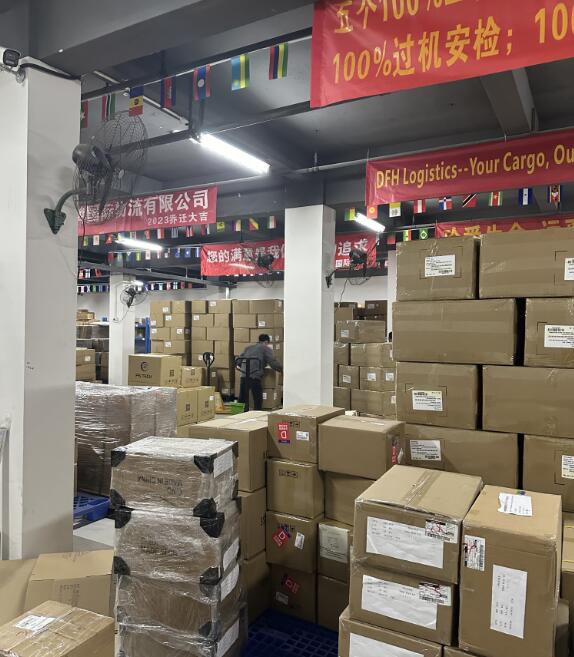
When clients in Portugal ask me about the cheapest way to ship from Alibaba, I always explain that the answer depends on cargo volume and urgency. Here’s what I’ve seen work best over the years:
1. Sea Freight (LCL & FCL)
- For large shipments above 20 CBM, FCL (Full Container Load) is the most cost-effective.
- For 1–15 CBM, LCL (Less than Container Load) is cheaper than air or express since you share container space.
- Most cargo enters through Lisbon, Leixões, or Sines ports.
2. Railway Freight
- With a transit time of 30–35 days, it’s faster than sea but cheaper than air.
- I recommend rail for medium-sized shipments when clients want to balance cost and time.
3. DDP Sea Freight
- For businesses without an EORI or VAT number, DDP sea freight is usually the cheapest all-in solution.
- It includes freight, duties, and Portugal’s 23% VAT in one fixed quote.
- Many of my small business and e-commerce clients prefer this for simplicity and cost control.
My cost-saving tips for Portuguese importers
- Consolidate orders: Combine purchases from different Alibaba suppliers into one shipment to cut costs.
- Avoid peak seasons: Prices rise around Chinese New Year and Christmas.
- Optimize packaging: Smaller cartons and less wasted space reduce LCL charges.
- Compare methods: Sometimes rail is slightly more expensive than sea but can save weeks of delivery time, which lowers storage costs.
Do you need an EORI or VAT number to import from Alibaba to Portugal?
This is one of the most common questions I hear from Portuguese clients: “Do I need an EORI or VAT number if I import from Alibaba?” The answer depends on the shipping method you choose.
EORI number
- In the EU, every business that imports goods must have an EORI (Economic Operators Registration and Identification) number.
- Without it, your goods cannot clear customs in Portugal.
- I always recommend my clients who plan regular imports to register — it’s straightforward and helps avoid clearance delays.
VAT in Portugal
- Portugal applies a 23% VAT on imported goods.
- If you are VAT registered, you can reclaim this tax in your quarterly filings.
- If you’re not VAT registered, the VAT becomes part of your landed cost.
When you don’t need EORI or VAT
- If you ship with DDP (Delivered Duty Paid), the freight forwarder (like us at DFH Logistics) acts as the official importer.
- We use our own EORI and VAT registration to clear your shipment.
- You receive your goods with duties and 23% VAT already paid.
My advice:
- If you’re a new importer or small e-commerce seller, start with DDP shipping — it saves you the hassle of registration.
- If you’re an established company, get your own EORI and VAT number — this way you can reclaim the 23% VAT and lower your final cost.
How is Portugal customs clearance handled when shipping from Alibaba?
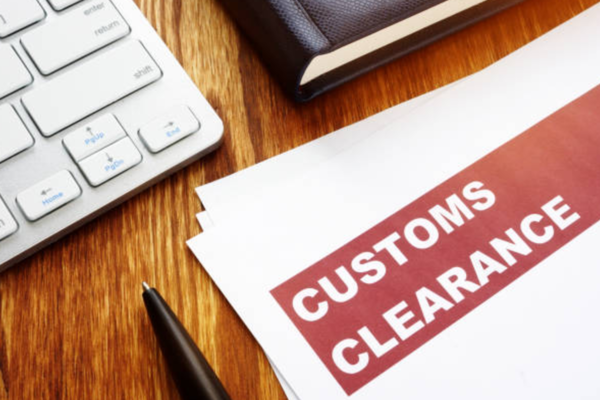
From my experience, even when shipping goes smoothly from China, many Portuguese importers run into problems at customs. Missing documents, wrong HS codes, or VAT issues can easily delay cargo. Let me explain how clearance works in Portugal.
Where clearance happens
- Sea freight: Usually at Lisbon, Leixões, or Sines ports.
- Air freight: At Lisbon Airport (LIS) or Porto Airport (OPO).
- Rail & truck freight: At inland customs offices when entering from Spain.
Steps of Portugal customs clearance
- Arrival notice — The carrier submits shipment details to Portuguese Customs.
- Import declaration — Filed with invoice, packing list, and HS codes.
- Duties & VAT — Customs calculates duty based on HS codes plus 23% VAT.
- Inspection (if needed) — Electronics, cosmetics, or toys may require CE/REACH certificates.
- Release of goods — After duties and VAT are paid, cargo is cleared for delivery.
Common issues when shipping from Alibaba to Portugal
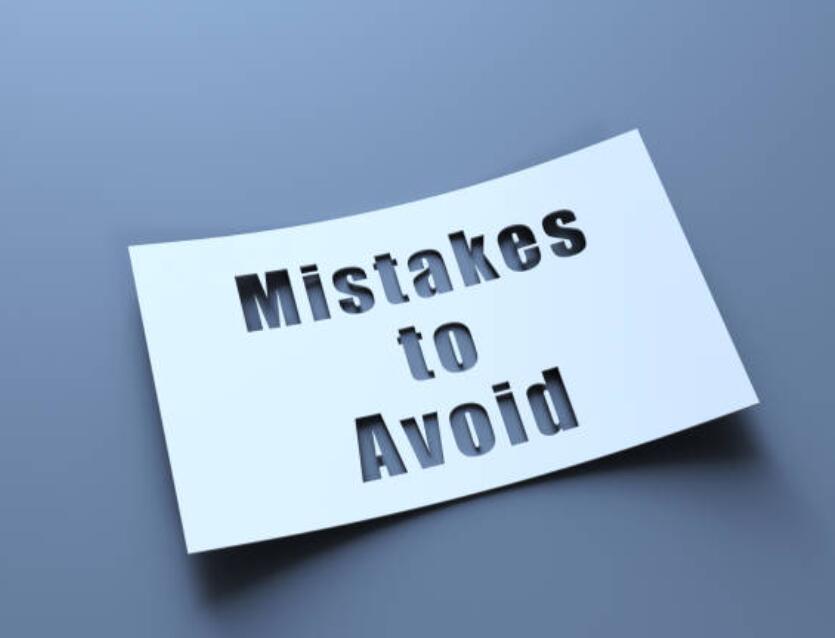
- Wrong HS codes → leads to higher duty or extra checks.
- Under-declared values → risk of fines or shipment seizure.
- Missing compliance certificates → especially for electronics, cosmetics, or medical products.
- VAT confusion → many new importers don’t plan for Portugal’s 23% VAT upfront.
How does our DFH Logistics help my clients
- I make sure all documents are ready before cargo leaves China.
- My team ensures HS codes are correctly classified.
- With DDP shipping, we handle customs clearance and pay duties + 23% VAT for you.
- We also check EU compliance standards (CE, RoHS, REACH) to prevent customs holds.
Tip from me: Portuguese customs are strict with compliance. If your goods need CE or REACH certification, always confirm this with your supplier before shipping. My team can review documents in advance to avoid clearance delays.
What are the prohibited and restricted items when shipping from Alibaba to Portugal?

One of the first things I remind my Portuguese clients is that not everything listed on Alibaba can be imported into Portugal. Some goods are strictly prohibited under EU law, while others are restricted and require certificates or permits.
Prohibited items (cannot be imported)
- Counterfeit or fake branded products
- Weapons, explosives, and ammunition
- Drugs, narcotics, and controlled substances
- Hazardous or toxic chemicals
- Goods made from endangered species (CITES restricted)
Restricted items (require permits or certificates)
- Electronics & toys: Must carry CE marking and comply with RoHS/REACH.
- Cosmetics & skincare: Need EU Cosmetics Regulation approval and safety certificates.
- Batteries & power banks: Require MSDS and transport authorization.
- Food, beverages & plants: Require sanitary or phytosanitary certificates.
- Medical devices & pharmaceuticals: Must be pre-approved under EU regulations.
- Textiles & clothing: Require proper EU labeling (fiber content, care instructions, origin).
Problems I’ve seen with clients
- Shipments of electronics blocked because suppliers didn’t provide CE certificates.
- Cosmetics held at customs due to missing safety data sheets.
- Clothing delayed because labels didn’t meet EU textile rules.
My advice
- Always ask your supplier for compliance documents before goods leave China.
- Don’t rely on “cheap shortcuts” — they can cost you more in fines and delays.
- If you’re unsure, choose DDP shipping — my team at DFH Logistics checks documentation and ensures your cargo meets EU standards.
How long does it take to ship from Alibaba to Portugal?
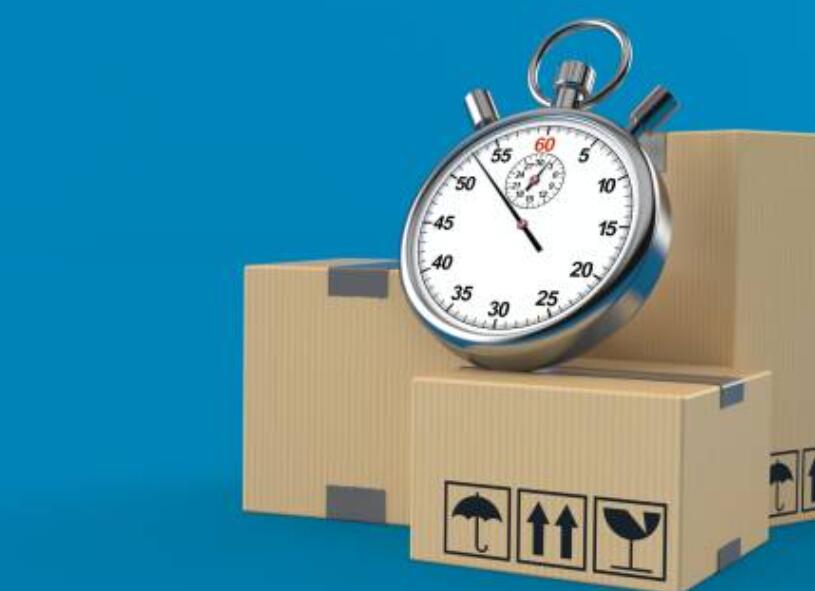
The first thing many Portuguese clients ask me is: “How many days will it take for my Alibaba goods to arrive in Portugal?” The answer depends on the shipping method, customs, and whether the cargo enters directly or through Spain.
Average transit times (China → Portugal)
- Express Courier (DHL, UPS, FedEx): 3–7 days
- Air Freight: 2–5 days (Lisbon or Porto airports)
- Sea Freight (LCL/FCL): 40–50 days (via Lisbon, Leixões, or Sines)
- Railway Freight: 30–35 days (China → Spain → Portugal by truck/rail)
- Truck Freight: 18–28 days (direct overland service)
- DDP Shipping: 7–50 days (depending on transport mode)
Factors that affect delivery time
From my experience, these are the most common reasons shipments face delays:
- Peak seasons: Chinese New Year and Christmas always slow things down.
- Customs paperwork: Missing CE or REACH certificates can add weeks.
- Port congestion: Lisbon and Sines sometimes get backed up.
- Final-mile delivery: Shipments outside Lisbon/Porto may take a few extra days.
In Summary If you need speed, always go with air freight to Lisbon or Porto. If cost is the top priority, sea freight is best, but plan early to avoid seasonal delays.
What is the best shipping method from Alibaba to Portugal?
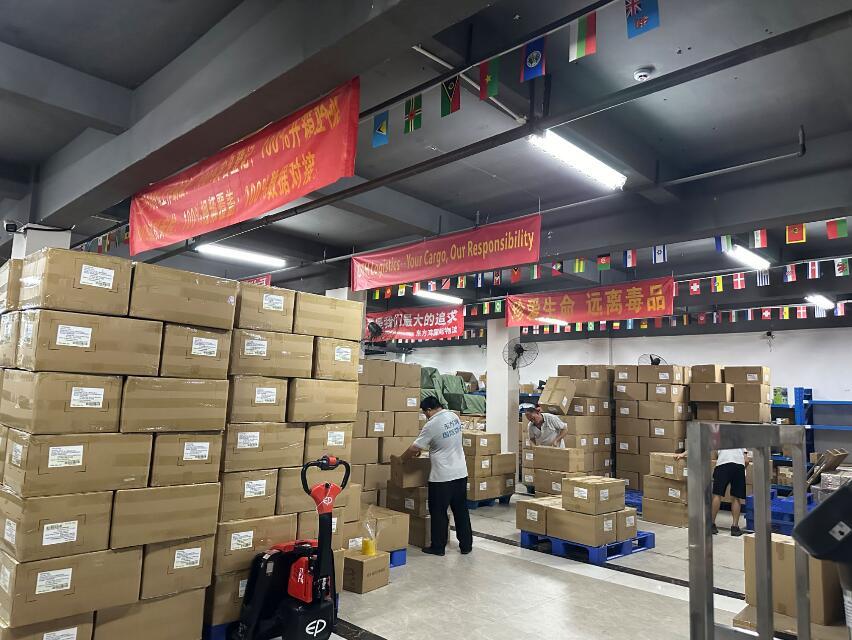
When my Portuguese clients ask me “Which method is the best?” my answer is always: “It depends on your cargo size, urgency, and whether you have VAT/EORI.” Here’s how I usually guide them:
Best by shipment type
Small urgent parcels (<100 kg):
Express courier (DHL, FedEx, UPS) — 3–7 days, simple door-to-door.Medium shipments (100–500 kg):
Air freight (Lisbon or Porto) — 2–5 days, faster and cheaper than express.Large shipments (>20 CBM):
Sea freight FCL — 40–50 days, best cost per unit.Balanced speed & cost:
Railway freight — 30–35 days, ideal for medium cargo.Importers without VAT/EORI:
DDP shipping — stress-free option with duties and Portugal’s 23% VAT included.
In a Word:
If speed matters, choose air freight to Lisbon or Porto. If cost is most important, go with sea freight. And if you want a completely stress-free solution, DDP shipping is the option I recommend most often for Portuguese importers.
Why choose DFH Logistics for shipping from Alibaba to Portugal?
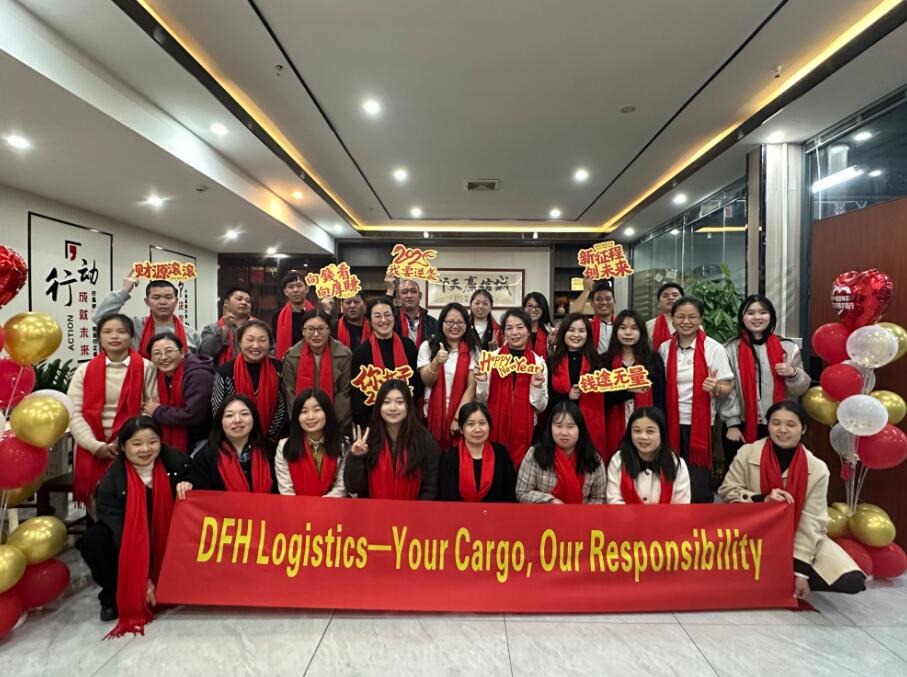
At DFH Logistics, we’ve worked with many Portuguese importers who came to us after struggling with hidden fees, customs delays, poor communication, or unexpected VAT bills. These issues often turned a simple Alibaba order into a complicated and costly process.
Why Portuguese importers choose DFH Logistics
- End-to-end service: We handle everything from factory pickup in China to delivery in Lisbon, Porto, or anywhere in Portugal.
- DDP expertise: Our team manages customs clearance, duties, and Portugal’s 23% VAT, so you don’t face surprises.
- Flexible transport options: Express, air, sea (Lisbon, Leixões, Sines), rail, or truck via Spain — we help you choose the best route.
- Transparent pricing: Every quote is clear, with no hidden costs.
- Free consolidation & warehousing: 30 days free storage in Shenzhen, with supplier consolidation to save costs.
- Compliance assurance: We verify CE, RoHS, and REACH documents to avoid customs holds.
- Amazon FBA support: Direct delivery to Amazon warehouses in Portugal and across the EU.
Importers who work with us no longer worry about delays, unclear costs, or VAT problems. With DFH Logistics, they get on-time delivery, compliant customs clearance, and predictable pricing.
In short:
At DFH Logistics, we don’t just act as a freight forwarder — we act as your logistics partner in China, making sure every Alibaba shipment to Portugal arrives smoothly, cost-effectively, and stress-free.
What is the shipping process from Alibaba to Portugal?
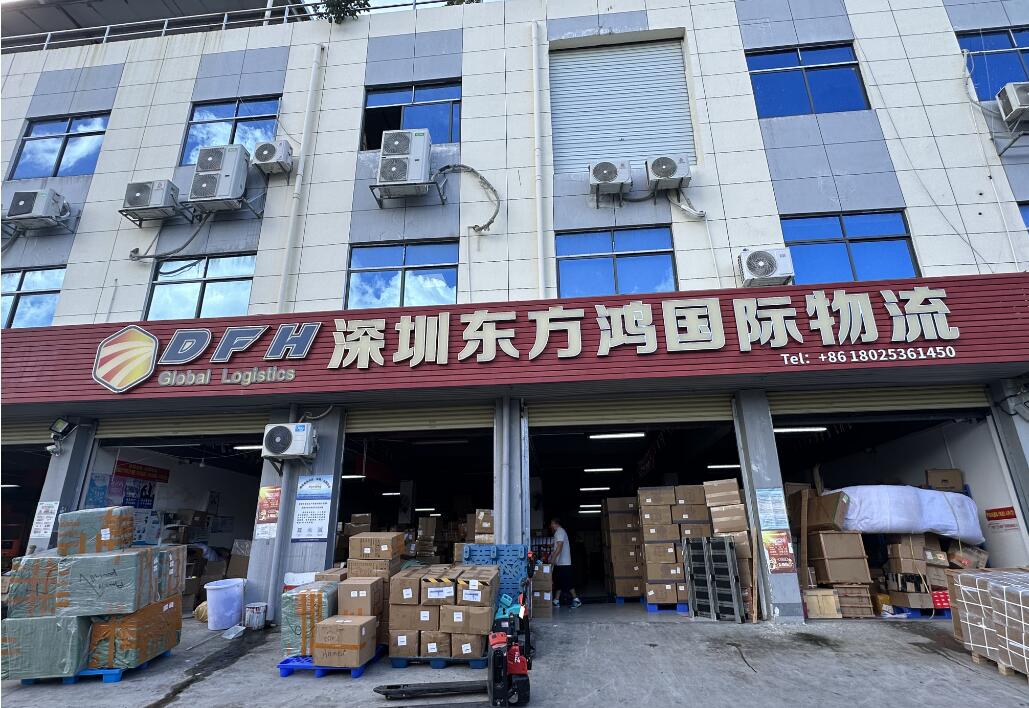
Below are the clear and structured process when importing from Alibaba. Here’s how it works step by step:
Step 1 — Place your Alibaba order
Confirm your supplier, agree on Incoterms (EXW, FOB, CIF, or DDP), and prepare basic documents such as the invoice and packing list.
Step 2 — Choose the shipping method
You decide between express, air, sea, rail, or truck freight. We help compare cost, speed, and reliability to select the best route for your shipment.
Step 3 — Pickup & consolidation in China
We help collect from your supplier(s), checked for packaging quality, and consolidated at our Shenzhen warehouse if needed.
Step 4 — Export customs clearance in China
We handle the export declaration, HS code classification, and coordinate with Chinese customs to ensure your shipment leaves smoothly.
Step 5 — International transport
Depending on your choice:
- Air Freight: Direct flights to Lisbon (LIS) or Porto (OPO).
- Sea Freight: Containers shipped to Lisbon, Leixões, or Sines.
- Railway Freight: Transport from China through Central Europe, then trucking into Portugal.
- Truck Freight: Direct overland service, often transiting through Spain.
Step 6 — Import customs clearance in Portugal
On arrival, customs declarations are filed, duties and 23% VAT are calculated, and inspections may be required for certain products.
Step 7 — Compliance verification
We ensure goods meet EU standards, such as CE, RoHS, and REACH. Suppliers must provide certificates, and we confirm validity before customs clearance.
Step 8 — Documentation & VAT handling
All customs documents are prepared and submitted. For VAT-registered businesses in Portugal, these documents can be used to reclaim the 23% VAT.
Step 9 — Final delivery
Once customs clearance is completed, cargo is delivered to your chosen address — whether it’s a warehouse, retail location, or Amazon FBA center.
Tips for you:
Choosing DDP shipping makes this process much easier. With DFH Logistics, all steps — from pickup in China to VAT handling and final delivery in Portugal — are managed seamlessly, leaving you free from unexpected delays or costs.
Conclusion
Importing from Alibaba to Portugal offers excellent opportunities for businesses of all sizes — from small e-commerce sellers to established wholesalers. The key to success lies in choosing the right shipping method, managing customs correctly, and planning for Portugal’s 23% VAT.
- For urgent small parcels, express courier is the fastest option.
- For mid-sized shipments, air freight to Lisbon or Porto balances speed and cost.
- For bulk containers, sea freight via Lisbon, Leixões, or Sines offers the lowest unit cost.
- For importers without EORI/VAT, DDP shipping is the most reliable and stress-free solution.
Ready to ship from Alibaba to Portugal?
Contact DFH Logistics today for a customized quote. We’ll design the best logistics plan for your business, whether you’re importing small test orders or full containers.

